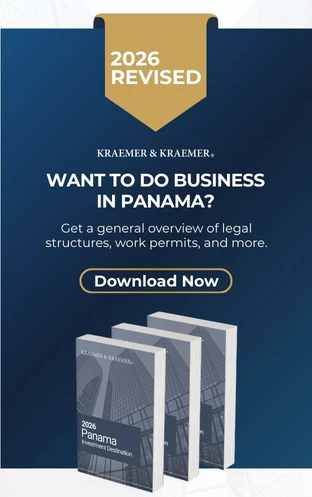In many English-speaking countries, such as the United States, there is a distinction between attorney vs lawyer – terms that are used with a different connotation, referring to different types of lawyers. In Panama, however, there is no such distinction, and licensed attorneys are known only as “abogados”. Instead, there are other ways to differentiate legal professionals in the country, such as their specialization, the attorney experience and legal practice areas.
This linguistic usage could generate confusion, especially for foreigners who want or need legal assistance in Panama. Therefore, in this article we break down those characteristics of the different classes of attorneys and what influences their choice of services from a law firm.
Why is It Important to Know the Type of Lawyers?
Understanding the different kinds of attorneys that exist in Panama is an important part of choosing the right practitioner for your legal needs. Although attorney vs lawyer does not present differences here, the legal practice is segmented in different legal branches. For corporate, tax or immigration matters, it is advisable to look for lawyers with background in these matters.
Differentiation of Lawyers or Attorneys in Panama
Although the attorney vs lawyer distinction does not apply in Panama, they can be differentiated by several aspects. In the country, the practice of advocacy is regulated by the Supreme Court of Justice and requires obtaining professional qualification. However, within the legal sector there are different specialties that allow attorneys to focus on different legal branches, such as corporate, criminal, civil, labor or immigration law. In addition, some types of lawyers also work as notaries or solicitors, depending on their formation and experience. Solicitors, in particular, have a relevant role in the representation of the State and in the defense of criminal cases.
Lawyer degree
As mentioned above, in order to exercise advocacy in Panama, it is mandatory to have a valid lawyer degree. According to Article 2 of Law 9 of 1984, only legal professionals with this qualification may act as legal representatives in courts. This is obtained after completing the occupational programme in a university and obtaining the suitability granted by the Supreme Court of Justice.
In addition, attorneys or lawyers in Panama can develop their skills in different areas of law through specializations and master’s degrees, which will also allow them to move up the career ladder to higher positions both at the public (in government bodies) and private (such as in law firms or companies) level. Among the most prominent studies are:
Specializations:
- Procedural Law.
- Dispute Resolution.
Master’s Degrees:
- Accusatorial Criminal System.
- Administrative Law.
- Registry, Real Estate and Notarial Law.
- Commercial Law.
Position in a law firm in Panama

Legal firms in Panama are usually structured with partners, associates, as well as junior and senior lawyers. An attorney’s experience within an office may determine his or her role and level of responsibility in certain cases.
In many instances, they begin their careers as paralegals or junior, gaining background in different legal practice areas before advancing to positions of greater responsibility.
Partners are typically attorneys or lawyers with an established track record and a well-defined specialty. They oversee the firm’s operations and handle high-profile clients. Associates, by contrast, are legal professionals who work within the firm but don’t hold ownership or take part in corporate decisions.
Legal practice areas
The type of lawyers or attorneys in Panama are also differentiated by the legal practice areas in which they specialize. Among the most common are:
- Corporate law: Focused on the creation, regulation and management of companies, commercial contracts and mergers.
- Real estate law: Dealing with real estate transactions, leases and property litigation.
- Tax law: Related to taxation, tax compliance and advising companies.
- Immigration law: Oriented to obtaining visas, residence permits and naturalization.
- Criminal law: Defends or represents persons accused of crimes, giving fulfillment of the laws.
- Labor law: Focused on the relationship between employers and employees, labor regulations and employment contracts.
Each legal practice area demands a strong foundation that begins with a lawyer degree and may include additional certifications or specializations to guarantee high-quality representation.
Attorney Experience
An attorney experience, while not necessarily determining that he or she is better, generally translates into greater mastery of the specialty or legal practice. It is advisable to verify the career ladder, whether it is a junior or senior lawyer, the expertise and previous cases to guarantee a good representation. In addition, background is not only measured in years, but in the complexity and variety of the cases managed. An attorney or lawyer who has worked with international clients or in high-profile litigation may have a broader perspective and a greater ability to resolve demanding legal situations.
Kraemer & Kraemer, Your Right Attorney or Lawyer
Although attorney vs lawyer makes no difference in Panama, the important thing is to choose the type of lawyer you really need, with the career ladder and specialization appropriate for your case. If you are looking for skilled legal professionals with a verified lawyer degree and extensive experience in various legal practice areas, Kraemer & Kraemer is an excellent choice. The firm has attorneys expert in corporate, immigration and real estate law, guaranteeing quality service. Contact us today.







